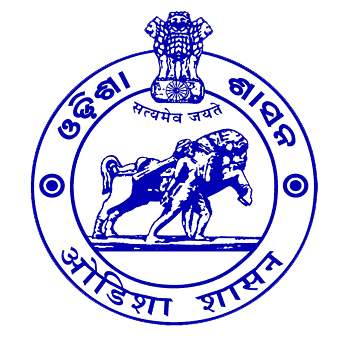The Enhancing Climate Resilience of India's Coastal Communities (ECRICC) project is a transformative initiative dedicated to protecting and restoring India's vulnerable coastal ecosystems. We are a multi-stakeholder collaboration bringing together government agencies, scientific institutions, community organizations, and international partners to address the urgent challenges posed by climate change, rising sea levels, and coastal degradation. With a strong emphasis on nature-based solutions, community engagement, and policy-driven interventions, ECRICC is pioneering sustainable climate adaptation strategies that safeguard both biodiversity and livelihoods.
As a project anchored in scientific expertise and grassroots participation, ECRICC integrates cutting-edge innovations with traditional knowledge systems to build climate-resilient coastal communities. By working across 949 villages in 4 districts and 7 landscapes of Odisha, we focus on restoring mangrove ecosystems, protecting seagrass and saltmarsh habitats, promoting sustainable livelihoods, and strengthening institutional capacities at every level.
Our Vision: A Climate-Resilient Future for Coastal India
ECRICC envisions a future where India's coastal regions thrive despite climate uncertainties. We strive to create a balanced ecosystem where nature, livelihoods, and development coexist harmoniously. Our work is driven by the goal of ensuring that coastal communities are equipped with the knowledge, resources, and institutional support they need to adapt to climate change while preserving their natural heritage.
We believe that climate resilience is not just about responding to disasters but proactively building ecosystems and economies that can withstand environmental changes. Our nature-based interventions and community-driven approaches ensure that the restoration of mangroves, seagrass meadows, and saltmarshes is deeply integrated with economic empowerment and social well-being.
Our Mission: Strengthening Climate Resilience Through Innovation and Community Empowerment
ECRICC's mission is to implement scalable, sustainable, and community-centered climate adaptation strategies that enhance coastal ecosystem health and economic security. Our key objectives include:
- Restoring and Conserving Coastal Ecosystems
- Large-scale mangrove afforestation and meta-nursery development to enhance coastal green cover.
- Protection of seagrass meadows and saltmarshes to support marine biodiversity and carbon sequestration.
- Adoption of scientific hydrological interventions, such as fishbone channels and creek deepening, to sustain fragile ecosystems.
- Building Community Capacity and Climate Leadership
- Training 304 Village Facilitators (Climate Champions) to lead local conservation and adaptation efforts.
- Empowering Self-Help Groups (SHGs), Eco-Development Committees, and Joint Forest Management Groups (JFMGs) to drive community-led climate action.
- Conducting skill-building workshops and training programs to promote sustainable livelihoods aligned with climate resilience goals.
- Promoting Innovative Climate Solutions
- Leveraging natural tidal flow for mangrove irrigation, reducing manual intervention while enhancing restoration efforts.
- Deploying GIS-based mapping and remote sensing technologies to track ecosystem health and identify vulnerable zones.
- Partnering with Technical Support Agencies to introduce science-backed restoration techniques for ecosystem protection.
- Establishing a Strong Institutional Framework
- Developing a multi-tier governance structure that integrates state, district, and village-level institutions.
- Collaborating with government agencies, technical agencies and NGOs to align ECRICC's objectives with national climate policies and global sustainability goals.
- Strengthening financial and administrative oversight to ensure the efficient implementation of climate adaptation projects.
A Multi-Stakeholder Approach
ECRICC operates under a structured institutional framework designed to ensure effective planning, implementation, and monitoring. Our governance model includes:
- State-Level Steering Committee on Climate Change: Provides strategic direction and inter-departmental coordination.
- State Project Management Unit (SPMU): Oversees overall project implementation, financial management, and technical support.
- District Level Coordination Committees (DLCCs) & District Project Management Units (DPMUs): Ensure local execution and collaboration with various stakeholders.
- Village-Level Organizations (SHGs, EDCs, Gram Panchayats, and Climate Champions): Facilitate on-ground climate action and ecosystem conservation efforts.
This decentralized governance structure ensures that climate adaptation initiatives are inclusive, participatory, and aligned with local priorities.



